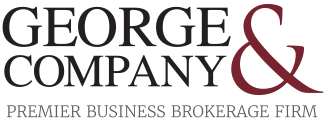508-753-1400
View Blog Posts by Category:
View Blog Posts Tagged with:
When to Sell Your Business: Market Timing

Once a business owner has determined that they are ready to sell their business, many will wonder whether or not the timing is right for receiving an optimal price. Certain factors such as the state of the business, market conditions, bank lending and buyer intentions may determine the appropriate time to sell. The following guide outlines some indicators that may be useful in assisting buyers with choosing the correct time when to sell your business.
Cash Flow
Business buyers typically desire acquisition opportunities with a rising cash flow, since they want to be confident that any deal in which they invest will prove to be advantageous to them. Proven revenue growth will display a good track record for the business and increase the likelihood of a buyer being interested. Growing profits will help increase the value of the company, as will industry position. If a business has a good standing and does well within its market, it may be time to reach out to potential buyers.
However, just because a business is not performing as well as the owner may desire, this does not mean that the business owner should wait for the company to reach optimal revenue standing. Strategic buyers may show more interest in the quality of a product line than its profit margin. Understanding which type of buyer is appropriate for a potential target may affect the timing because it may be valued higher to a specific buyer in its current state. An M&A advisor can help determine the correct type of buyer for any business.
Market Conditions
While the stock market is one reliable indicator of market conditions, it is important to keep in mind the fact that the M&A process can often last up to a year, so a seller cannot depend entirely on the current status of the financial markets. It is critical for a business owner to project future market conditions so that they can position their business in the appropriate position for targets.
Some industries have less predictable market conditions than others. Those in the technology industry may find it advantageous to sell before their product becomes outdated, while other marketplaces may have a more stable clientele. The current real estate market is important to pay attention to as well, since many business owners also look to sell the land on which their business stands. The landlord may have a large impact on the overall success of the M&A deal.
Due to the unpredictable market conditions throughout this recession, many sellers have been hesitant to put their businesses up for sale until the economy has improved. However, now that outside factors such as election season, excess cash burning a hole in private equity’s pockets and the fiscal cliff dealings have settled, the M&A market is beginning its road to health.
Business owners also do not realize that private equity is currently sitting on a large pile of unused capital. With all of the dry powder currently sitting in the pockets of private equity groups, now may prove to be one of the best times to sell a business. Since private equity groups want to get rid of the excess capital before it must be returned to the investors, they are willing to pay a premium for the right type of company. Understanding industry trends such as these may suggest a better payout for the business seller.
Emotional Factors
If a business owner feels the passion disappearing from his or her work, then it may be advantageous to sell the business sooner rather than later. When the drive subsides, it can affect the business’s statistics, which is why it is so critical to sell the business before a lack of interest sends profits down.
On the other hand, if the business owner has not fully accepted the fact that they are no longer going to have full control over their company, it is beneficial to wait until he or she is more acclimated to the idea. The M&A process can be a long and involved endeavor, and one of the biggest reasons for sellers withdrawing from the unfinished deal is because they were not truly ready to sell. Business owners must ask themselves difficult questions in order to gauge whether or not they have chosen to sell for the correct reasons.
While all of these points are important to consider when analyzing the company’s marketability in the bigger picture, oftentimes it can be advantageous to throw caution to the wind and get out into the market.
A few different factors can assist a business owner in the decision of when to sell, but the correct answer always varies from company to company. The best way to ensure that you put your business up for sale at the appropriate time is to discuss it with your M&A advisor. Their extensive knowledge of the industry can help you make the most calculated deal possible.
If you feel like this has helped you decide when to sell your business, please contact George & Company. We are M&A experts and can assist you in finding the best sale price for your business in complete confidence.
